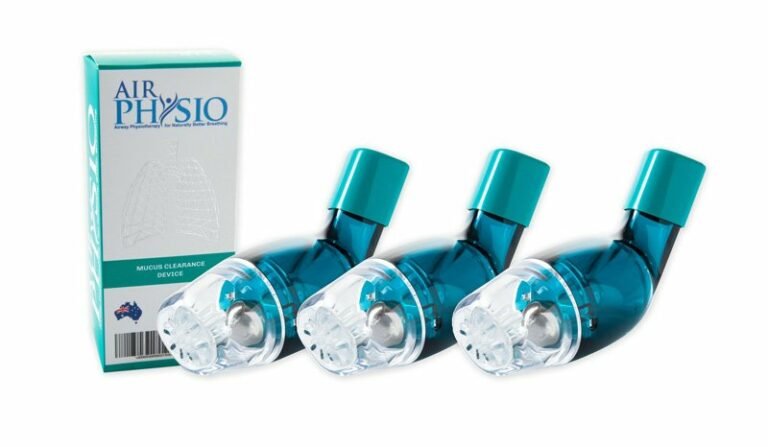Why Lung Health Matters on World MS Day – And Every Day
Each year on May 30, the world unites to recognise World MS Day – a powerful movement that brings together the global Multiple Sclerosis (MS)
Right-sided heart failure is a condition in which the right side of the heart loses its ability to pump blood efficiently. Right-sided heart failure is a condition in which the right side of the heart loses its ability to pump blood efficiently.
Most people develop heart failure because of a problem with the left ventricle. But reduced function of the right ventricle can also occur in heart failure. As blood begins to back up behind the failing left ventricle and into the lungs, it will become increasingly difficult for the right ventricle to pump blood through the lungs, back to the left ventricle. Like the left ventricle, the right ventricle will eventually weaken and begin to fail.
Right-sided heart failure occurs in about 1 in 20 people. Coronary artery disease is the most common cause of heart failure, but it can be a complication of other conditions. Right-side heart failure may cause fluid to build up in the feet, ankles, legs, liver, abdomen, and the veins in the neck. Right-side and left-side heart failure also may cause shortness of breath and fatigue (tiredness). Heart failure may affect the right side of the heart (right ventricle), the left side (left ventricle), or both sides. In right-sided heart failure, the right ventricle loses its pumping function, and blood may back up into other areas of the body, producing congestion. Congestion affects the liver, the gastrointestinal tract, and the limbs. In addition, the right ventricle may be unable to pump blood efficiently to the lungs and to the left ventricle.
Causes of right-sided heart failure include:
The leading causes of heart failure are diseases that damage the heart. Examples include coronary heart disease (CHD), high blood pressure, and diabetes.
A variety of different situations may trigger an episode of heart failure, including:
Many people admitted to the hospital with heart failure do not follow a recommended low-salt diet or take heart failure medicines as prescribed.
Heart failure requires periodic monitoring by your health care provider. The goals of treatment include controlling the symptoms, reducing the heart’s workload, and improving your heart’s ability to function. Any underlying disorders and causes should be treated, if possible. The most common therapy for right-sided heart failure is treating left-sided heart failure, including medical, etc…Valve replacements and procedures such as bypass surgery (CABG) and angioplasty may help some people.
Generally, you must reduce the salt in your food and the amount of liquids you drink. You should also consider losing weight if you are overweight, stopping smoking, and avoiding too much alcohol.
Heart failure is a serious disorder. Everything possible should be done to prevent the heart’s pumping problems from getting worse. There is no cure, but many forms of heart failure can be controlled with medication, addressing the underlying disorders, and using implanted devices with defibrillation capabilities.
If the case of Right-sided heart failure, because the condition is usually due to strained and injured heart muscles, any excess strain to the lungs and breathing, also created further aggravation to the heart muscles which may cause further heart problems.
For more information about Right-Sided Heart Failure, please refer to the following web pages and articles:
What Is Right-side Heart Failure?
7 Habits for a Healthy Heart
Heart Failure
Right Ventricular Function and Failure
Each year on May 30, the world unites to recognise World MS Day – a powerful movement that brings together the global Multiple Sclerosis (MS)
Asthma is more common than many people realise — affecting over 262 million individuals around the world. Yet despite how many lives it touches, asthma
In the pursuit of optimal respiratory health, understanding and implementing techniques like Chest Percussion can be a game-changer. This method, designed to enhance lung function
AirPhysio may be able to help by assisting with
✅Clearing the mucus clogging airways
✅Helps Promote Optimal Lung Capacity
✅Helps Promote Optimal Lung Hygiene
✅Helps treat Respiratory Conditions
✅May Reduce the chance of developing lung infections
✅Recommended by doctors, physical Therapists & Pulmonologists
✅Helps Make Breathing Easier
✅Sold in 106 countries globally


Do you suffer from Dry or Persistent Cough, Breathlessness, Respiratory or Severe Respiratory Conditions, or Shortness of Breath as you Get Older?

THIS PRODUCT MAY NOT BE RIGHT FOR YOU. READ THE WARNINGS BEFORE PURCHASE (Contraindications of Untreated pneumothorax; Tuberculosis; Oesophageal surgery; Right-sided heart failure; Middle ear pathology, such as ruptured tympanic membrane)
FOLLOW THE DIRECTIONS FOR USE
IF SYMPTOMS PERSIST, TALK TO YOUR HEALTH PROFESSIONAL

Gallery
AirPhysio is an Oscillating Positive Expiratory Pressure (OPEP) device that is used for mucus clearance and lung expansion to help in the treatment of respiratory conditions. The use of the AirPhysio device helps to facilitate secretion mobilization and maximize lung volume for cleaner healthier lungs.
© AirPhysio 2022 – All Rights Reserved
| Cookie | Duration | Description |
|---|---|---|
| cookielawinfo-checkbox-analytics | 11 months | This cookie is set by GDPR Cookie Consent plugin. The cookie is used to store the user consent for the cookies in the category "Analytics". |
| cookielawinfo-checkbox-functional | 11 months | The cookie is set by GDPR cookie consent to record the user consent for the cookies in the category "Functional". |
| cookielawinfo-checkbox-necessary | 11 months | This cookie is set by GDPR Cookie Consent plugin. The cookies is used to store the user consent for the cookies in the category "Necessary". |
| cookielawinfo-checkbox-others | 11 months | This cookie is set by GDPR Cookie Consent plugin. The cookie is used to store the user consent for the cookies in the category "Other. |
| cookielawinfo-checkbox-performance | 11 months | This cookie is set by GDPR Cookie Consent plugin. The cookie is used to store the user consent for the cookies in the category "Performance". |
| viewed_cookie_policy | 11 months | The cookie is set by the GDPR Cookie Consent plugin and is used to store whether or not user has consented to the use of cookies. It does not store any personal data. |